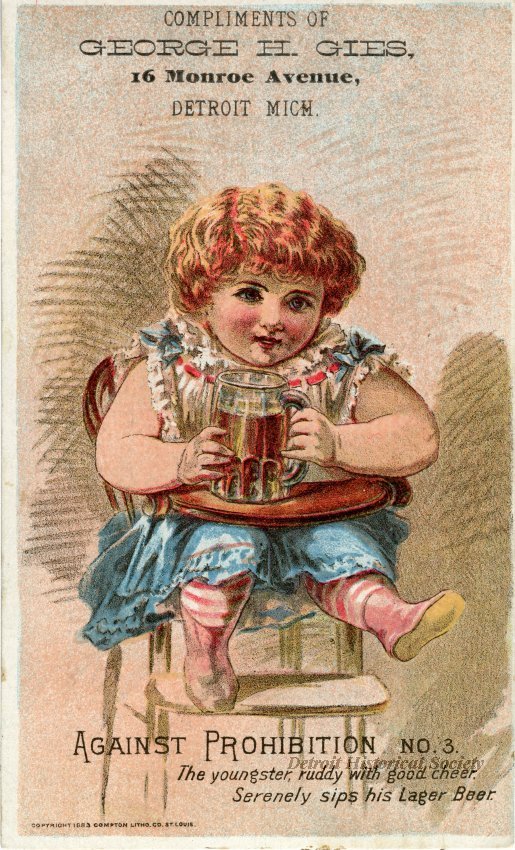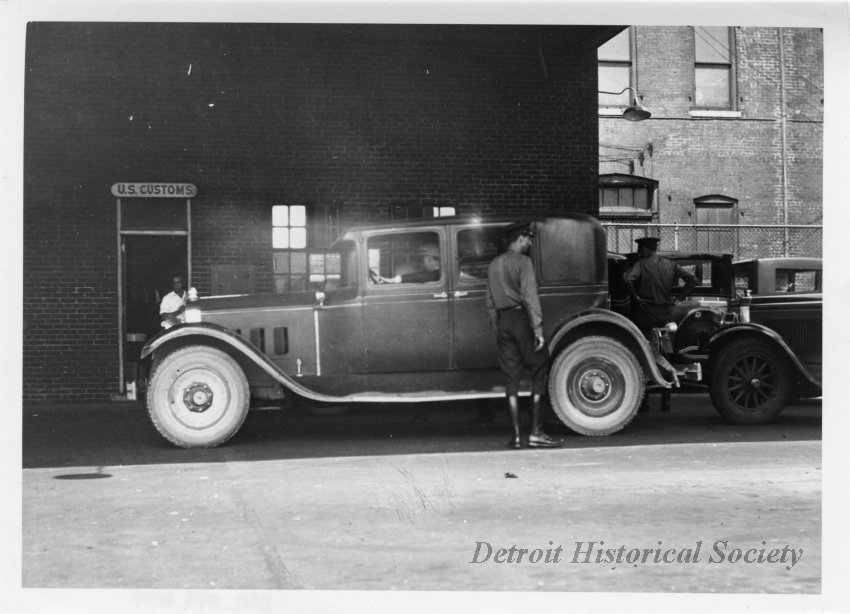The First State In and the First State Out
Utah, the last state needed, ratified the 21st Amendment and so struck the 18th Amendment, which outlawed alcohol nationwide, from the U.S. Constitution. For the first time in nearly 16 years, Detroiters could once again order alcohol at bars without fear of arrest or harassment.
This moment was a long time coming, Michigan was not only the first state to ratify the 21st Amendment, but also the first state to implement prohibition statewide.
Detroit and the Temperance Movement
 By 1900, the Temperance Movement was well established in Detroit.
By 1900, the Temperance Movement was well established in Detroit.
Since 1833, various Temperance groups, both in Detroit and across Michigan, advocated for statewide prohibition with varying success.
However, for nearly a hundred years, the working class, European immigrant, anti-Temperance majority in Detroit, was a wall against the passage of state-wide temperance.
But, by 1910, the momentum turned in temperance’s favor in the state legislature. In 1917, Michigan passed the Damon Act — outlawing the sale, manufacturing, and transportation of alcohol within the state. The act also served as the blueprint for the 18th Amendment. Detroiters only had six months to stock up as much alcohol as they could before the ban went into effect.
Within two years, after the Damon Act was passed, alcohol was prohibited nationwide.
Photo: c. 1883, from the Detroit Historical Society collection. Part of a series of anti-Prohibition trade cards which bear comical color lithographic prints and rhymes in support of alcohol, provided "compliments of George H. Gies, 16 Monroe Avenue, Detroit, Mich.," a wine and liquor vendor, and printed by the Compton Lithograph Company of St. Louis. This card depicts a young child seated in a high chair, grasping a large glass of beer. "Against Prohibition No. 3. The youngster, ruddy with good cheer / Serenely sips his Lager Beer," is printed below.
Detroit Under Prohibition

Photo: c. 1920s, from the Detroit Historical Society collection. Black and white photographic print of a United States Customs officer standing adjacent to an automobile at the dock on Woodward Avenue. Automobiles and agents are visible in the background.
Detroit, and other border cities, quickly found themselves plagued by criminal activity as Detroiters and others fought for a chunk of the illegal liquor trade. Rumrunners crisscrossed the Detroit River, battled law enforcement, and peddled booze across the city in complete defiance of the law.
Detroit declined as legitimate businesses either went underground or closed up. Detroit’s brewers (Stroh’s, Goebel’s, Pfieffer, and Kling) struggled as Detroiters sought out smuggled beer rather than drink the weakened “near beer” the brewers were allowed to produce.
A few breweries were not content with near beer and smuggled their “real beer” out to consumers. Speakeasies, known locally as Blind Pigs, opened across Detroit. From broom closets to Grandma’s basements, speakeasies were both an oasis and a possible trap. Raids by law enforcement were frequent — especially if the right people were paid off.
As prohibition continued into the 1920s, violence routinely spilled over in the streets as enforcement drained resources, time, and incited conflicts across the city. The arms race between law enforcement and smugglers increasingly diminished the notion that total prohibition was possible — not just in Detroit, but anywhere.
Detroiters Want Beer
The weight of Prohibition proved to be too much. In March 1933, beer regulations were laxed across the country and one month later, Michigan became the first state to ratify the 21st Amendment.
The American Legion Convention celebrated the news by drinking 300 barrels and 500 cases of Stroh beer at their convention that May in Detroit. As more states ratified the amendment, Detroiters had more reason to celebrate. With Utah’s ratification on December 5th — officially known as Repeal Day, alcohol was legal again across the country and Detroiters cheered.

